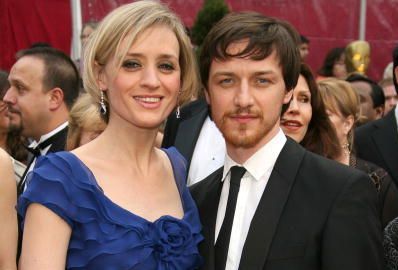 James McAvoy.
James McAvoy..jpg) Marion Cotillard.
Marion Cotillard.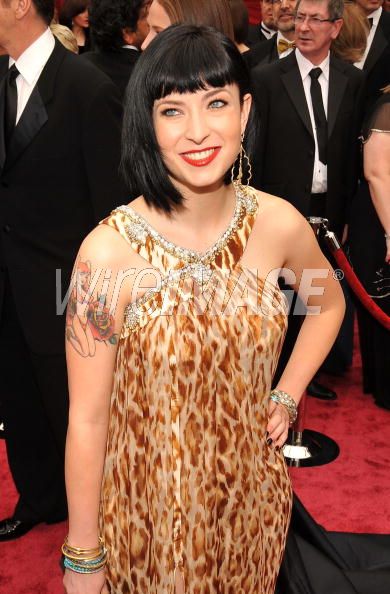 Diablo Cody.
Diablo Cody.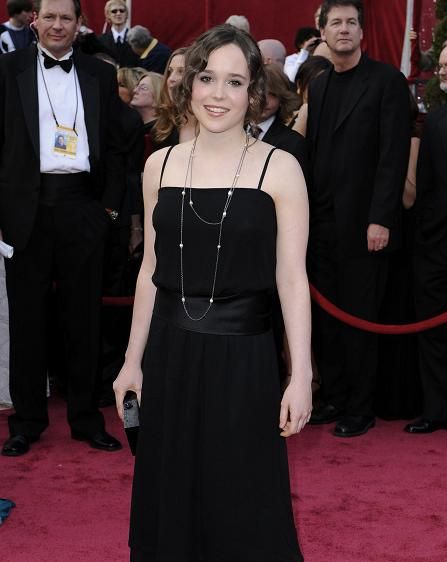 Ellen Page.
Ellen Page.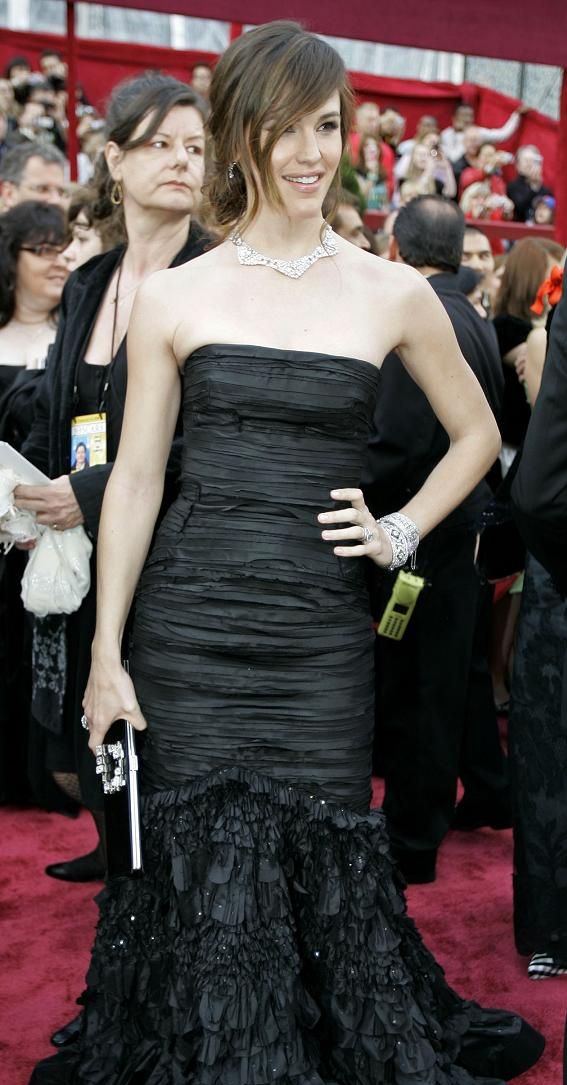 Jennifer Garner.
Jennifer Garner.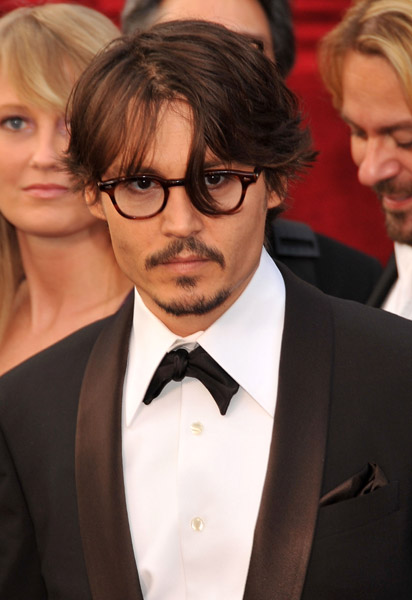 Johnny Depp.
Johnny Depp.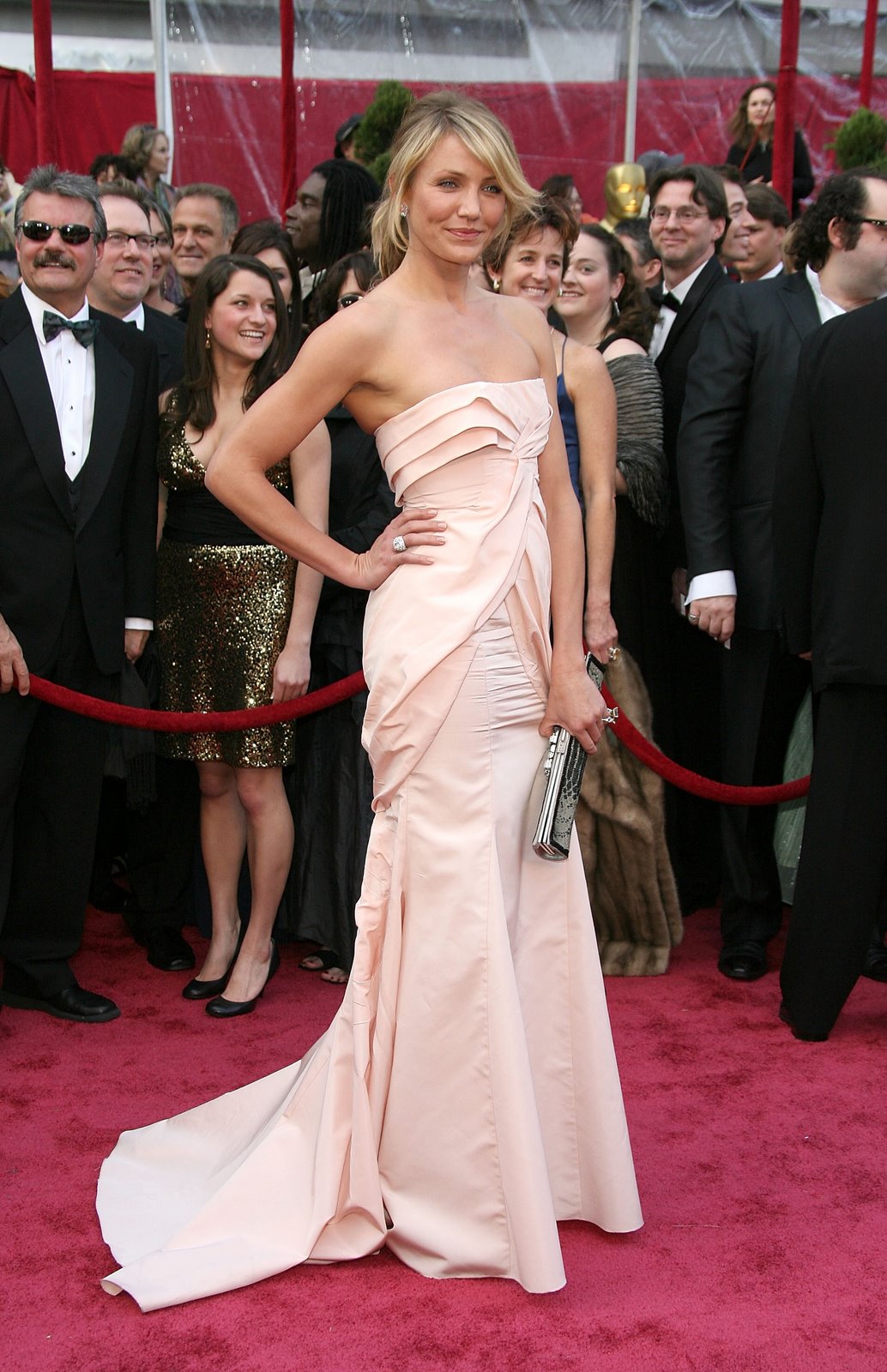 Cameron Diaz.
Cameron Diaz.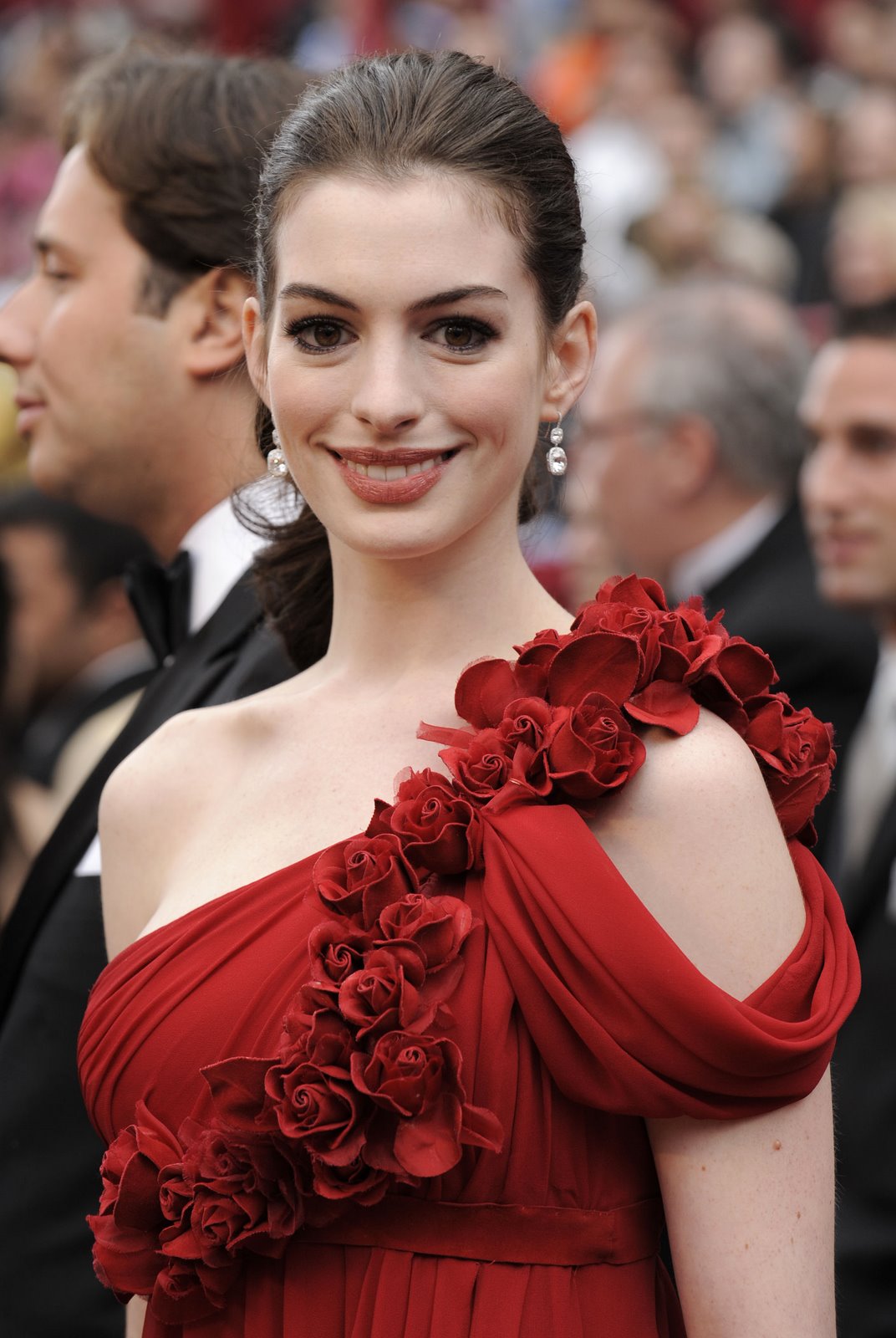 Anne Hathaway.
Anne Hathaway.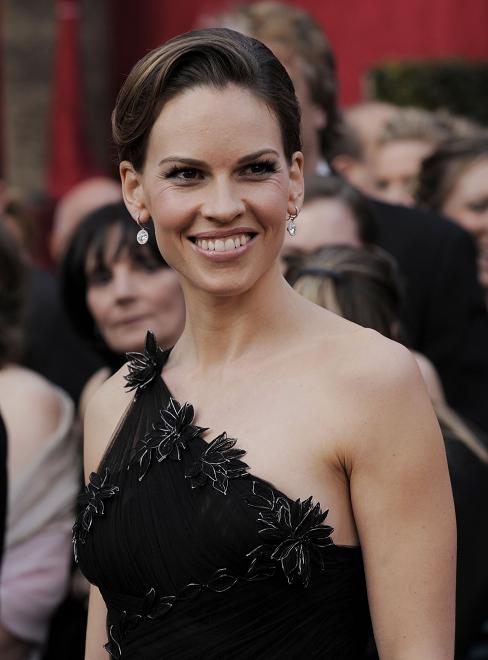 Hillary Swank.
Hillary Swank.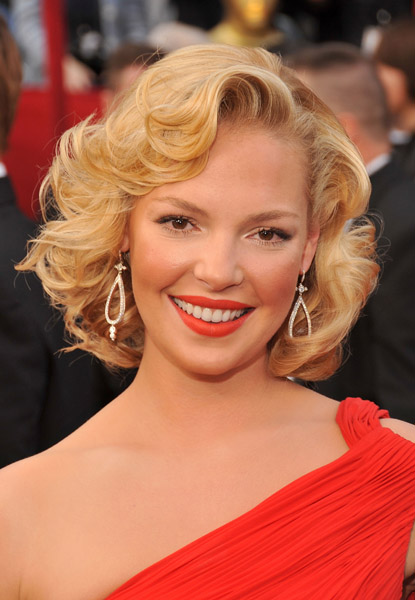 Katherine Heigl.
Katherine Heigl.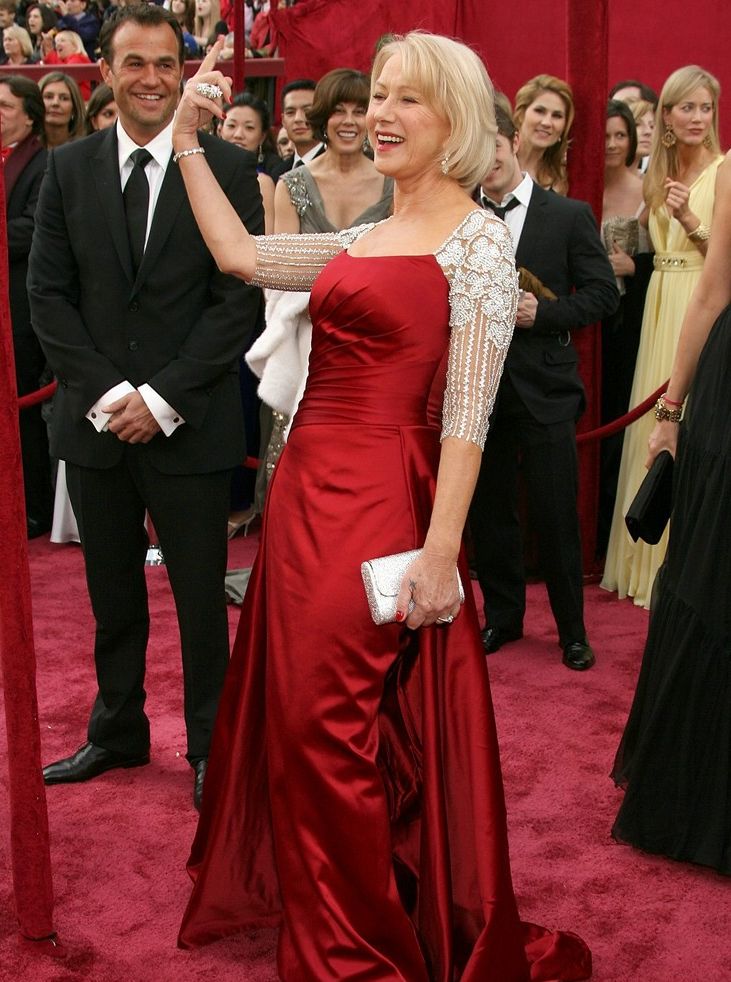 Helen Mirren.
Helen Mirren.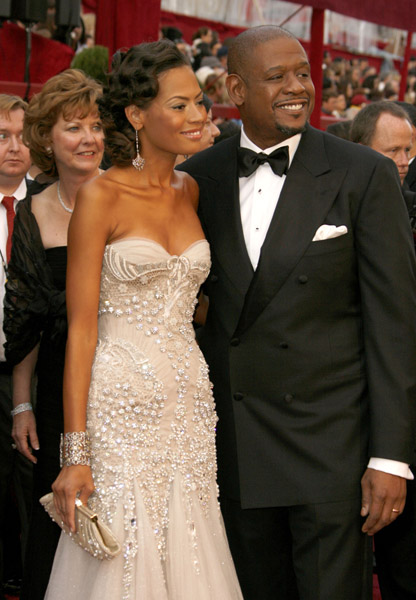 Forest Whitaker.
Forest Whitaker.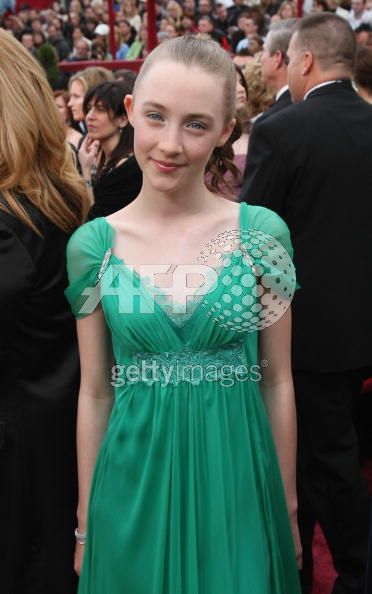 Saoirse Ronan.
Saoirse Ronan.
TAKING A WALK ON THE FILMIC SIDE, TRANSITING THE VINTAGE ROADS.
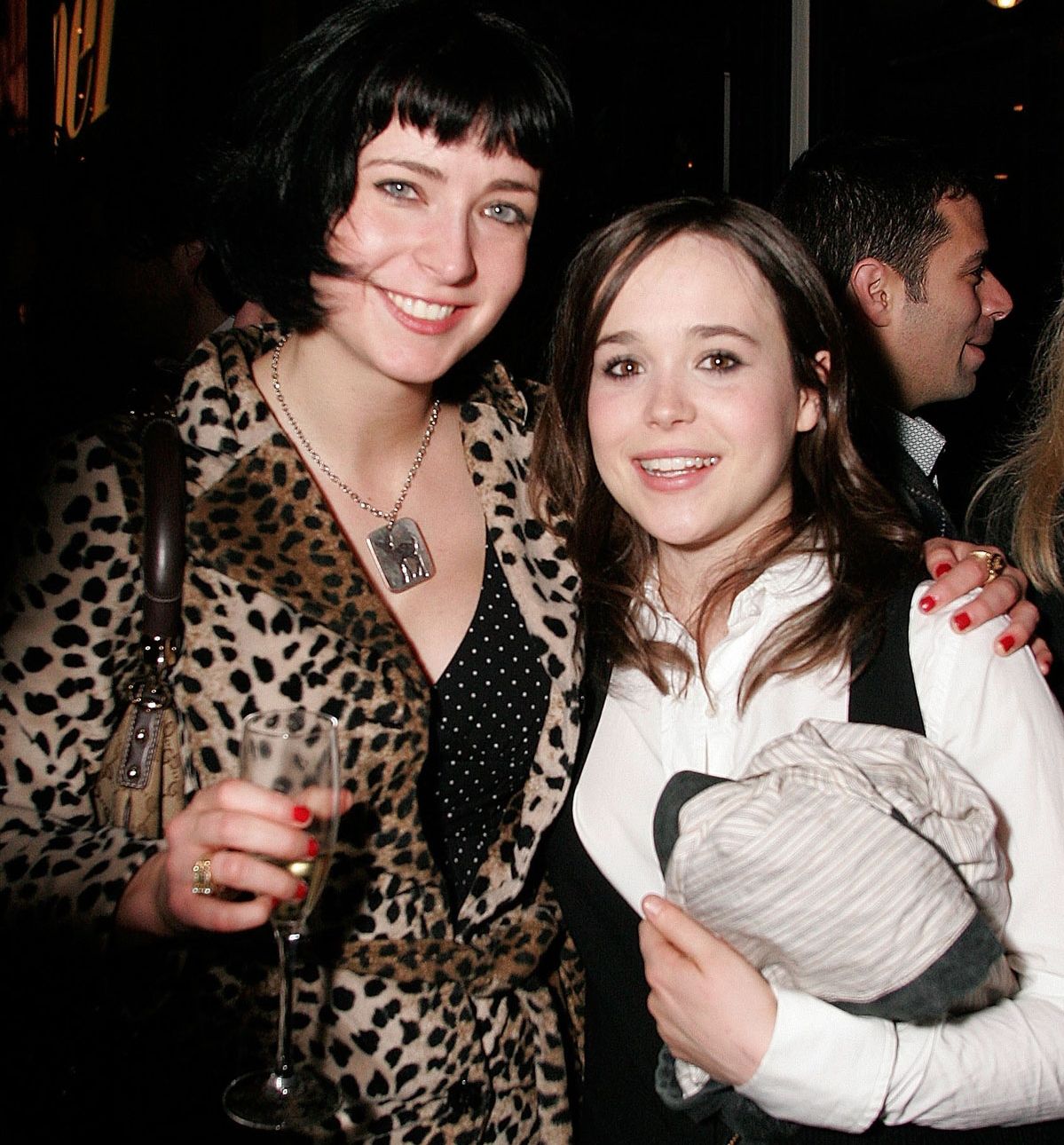 Juno
Juno 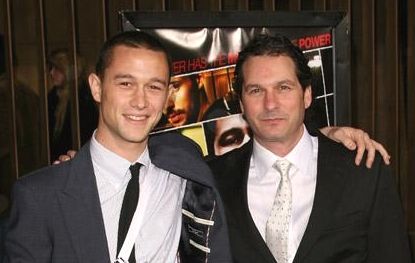 Director: Scott Frank
Director: Scott Frank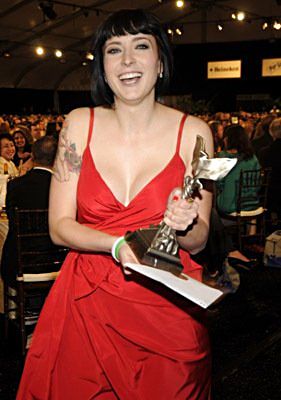 Diablo Cody, Juno
Diablo Cody, Juno Ellen Page, Juno
Ellen Page, Juno Philip Seymour Hoffman, The Savages
Philip Seymour Hoffman, The Savages Cate Blanchett, I'm Not There
Cate Blanchett, I'm Not There Once, Director: John Carney (Ireland)
Once, Director: John Carney (Ireland) "No surprise, and absolutely proper: Roger Deakins for shooting both "No Country for Old Men" and "The Assassination of Jesse James by the Coward Robert Ford" (though I hope they don't cancel each other out). But nothing for "Zodiac"? At the very least it should have received a nomination for its amazing visual effects. But unless you've seen the Director's Cut DVD (or some Digital Domain clips on YouTube) you probably wouldn't have known they were effects. That's how good they are".
"No surprise, and absolutely proper: Roger Deakins for shooting both "No Country for Old Men" and "The Assassination of Jesse James by the Coward Robert Ford" (though I hope they don't cancel each other out). But nothing for "Zodiac"? At the very least it should have received a nomination for its amazing visual effects. But unless you've seen the Director's Cut DVD (or some Digital Domain clips on YouTube) you probably wouldn't have known they were effects. That's how good they are". "The academy has traditionally been resistant to genre films, which is the only reason I can fathom for the snubbing of "Zodiac" in every category. David Fincher's mesmerizing drama about the obsessive search for the true-life serial killer who terrorized San Francisco in the late '60s and early '70s made many a critic's top 10 list but didn't receive one nomination. Talk about a killer!" Source: Moviesfilter.spaces.live.com
"The academy has traditionally been resistant to genre films, which is the only reason I can fathom for the snubbing of "Zodiac" in every category. David Fincher's mesmerizing drama about the obsessive search for the true-life serial killer who terrorized San Francisco in the late '60s and early '70s made many a critic's top 10 list but didn't receive one nomination. Talk about a killer!" Source: Moviesfilter.spaces.live.com Cinematography --
Cinematography -- Meanwhile, "Zodiac" makes painterly, panoramic use of digital photography. The academy seems to prefer its nominees shot on film. Their loss. In "Zodiac," the format's usual immediacy achieves a haunting scope and textural richness as indelible as the 35mm images nominee Robert Elwit captured for "There Will Be Blood". Source: www.Boston.com
Meanwhile, "Zodiac" makes painterly, panoramic use of digital photography. The academy seems to prefer its nominees shot on film. Their loss. In "Zodiac," the format's usual immediacy achieves a haunting scope and textural richness as indelible as the 35mm images nominee Robert Elwit captured for "There Will Be Blood". Source: www.Boston.com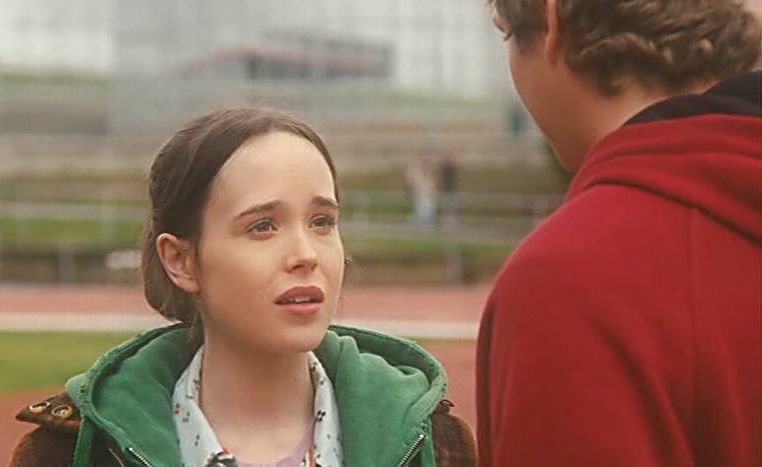 "Listening to the non-stop one-liners and biting world-weary observations that come from the main character in Juno may have caused a crisis of coolness among some audience members. This 21st century antiheroine has given some people the disconcerting feeling of not "getting" her, accusing screenwriter Diablo Cody (the pen name of Brook Busey-Hunt) of having drawn Juno (played by the talented Ellen Page) as a goofy and uncontactable character.
This young woman —"avant-garde posturing mixed with a post-punk naïve spirit"— has certainly proven to grate on a lot of people's nerves, through her odd screen persona. For some cinephiles this is new proof of marketing-savvy mass entrancement, a deceitful "feel good" story that tricks us into believing in happiness ever after.
I think the film can alternatively be seen as the origin of a new female meme, a redefinition of "Peter Pan's Never Land" as "Eternal Pun and Negative Land". Ellen Page delivers another challenging performance after her previous turn as Hayley Stark in "Hard Candy" (2005), where she wore a red hooded sweatshirt —a reference to Little Red Riding Hood, one of the classic female memes.
"Listening to the non-stop one-liners and biting world-weary observations that come from the main character in Juno may have caused a crisis of coolness among some audience members. This 21st century antiheroine has given some people the disconcerting feeling of not "getting" her, accusing screenwriter Diablo Cody (the pen name of Brook Busey-Hunt) of having drawn Juno (played by the talented Ellen Page) as a goofy and uncontactable character.
This young woman —"avant-garde posturing mixed with a post-punk naïve spirit"— has certainly proven to grate on a lot of people's nerves, through her odd screen persona. For some cinephiles this is new proof of marketing-savvy mass entrancement, a deceitful "feel good" story that tricks us into believing in happiness ever after.
I think the film can alternatively be seen as the origin of a new female meme, a redefinition of "Peter Pan's Never Land" as "Eternal Pun and Negative Land". Ellen Page delivers another challenging performance after her previous turn as Hayley Stark in "Hard Candy" (2005), where she wore a red hooded sweatshirt —a reference to Little Red Riding Hood, one of the classic female memes.
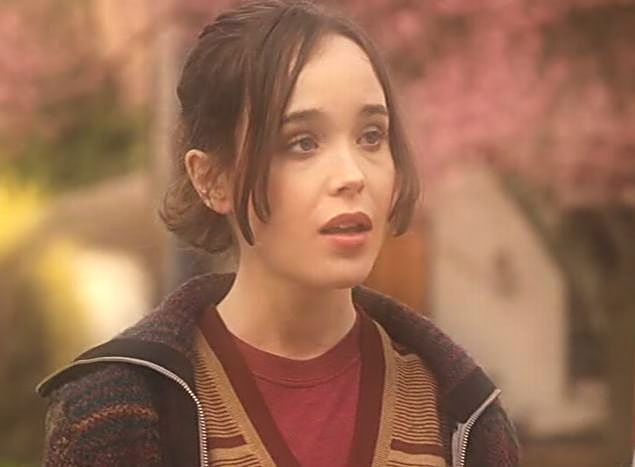 Juno's voice introduces us to a world of teenage climes (and climaxes), unceremoniously shedding the typical image of the "klutzy" all-American doll, as Diablo Cody criticizes the Hollywood studios responsible for the sexist movie market who want to push this shallow feminine imagery on their audiences over and over. Obviously the treatment of Juno is never the usual sex symbol disguised in the prototypical girl next door cut-out who is invariably obsessed over a more important male lead character in the story. Instead, in Jason Reitman's film it's just the opposite — the central feminine character is a slacker type girl, who doesn't dress in sexy outfits or giggle in the classroom with the popular girls' clique. Juno often appears isolated, uncontrolled in her verbal puns, disheveled, and frequently pissed off, a postmodern "rebel without a cause" in grunge fashion.
Twisted and extreme slang has also become a point of displeasure for some movie-goers. I can't help but quote here what is perhaps the most polemical one: "honest to blog." As I am another scribe in the blogosphere, I think it's probably going to be the most used in our popular collective speech for a while. There are tons of more far-fetched expressions, but this one is noteworthy for being directly associated with the blogging/MySpace/Facebook generation.
Our conversations are full of clichés, of comprised, referential expressions that we pull out time and again without realising we've borrowed them from the TV and other sources of popular culture. Still, we cringe (or pretend to cringe) when we hear a big chunk of them come from the mouths of fictional characters; we feel mirrored in their banality and then these regurgitated catch phrases embarrass us. Or it's possible we get to fall in love with some of these characters only when we forget our/their limitations.
Professor Nicholas Emler is author of "The Costs and Causes of Low Self-worth", which quantifies the cost of low self-esteem:
"relatively low self-esteem is a risk factor for suicide, suicide attempts, depression, teenage pregnancy and victimisation by bullies." Emler also wrote "Adolescence and Delinquency: The Collective Management of Reputation" about psychology's reaction to deviance, attributing it to flaws or deficits in the individual's psychological make-up. "Cultural stereotypes, cinema and advertising all play their part in shaping our opinion on beauty. While in one group the majority can agree on what they find attractive, it's difficult to say why one person stands out" —Emler.
Juno's voice introduces us to a world of teenage climes (and climaxes), unceremoniously shedding the typical image of the "klutzy" all-American doll, as Diablo Cody criticizes the Hollywood studios responsible for the sexist movie market who want to push this shallow feminine imagery on their audiences over and over. Obviously the treatment of Juno is never the usual sex symbol disguised in the prototypical girl next door cut-out who is invariably obsessed over a more important male lead character in the story. Instead, in Jason Reitman's film it's just the opposite — the central feminine character is a slacker type girl, who doesn't dress in sexy outfits or giggle in the classroom with the popular girls' clique. Juno often appears isolated, uncontrolled in her verbal puns, disheveled, and frequently pissed off, a postmodern "rebel without a cause" in grunge fashion.
Twisted and extreme slang has also become a point of displeasure for some movie-goers. I can't help but quote here what is perhaps the most polemical one: "honest to blog." As I am another scribe in the blogosphere, I think it's probably going to be the most used in our popular collective speech for a while. There are tons of more far-fetched expressions, but this one is noteworthy for being directly associated with the blogging/MySpace/Facebook generation.
Our conversations are full of clichés, of comprised, referential expressions that we pull out time and again without realising we've borrowed them from the TV and other sources of popular culture. Still, we cringe (or pretend to cringe) when we hear a big chunk of them come from the mouths of fictional characters; we feel mirrored in their banality and then these regurgitated catch phrases embarrass us. Or it's possible we get to fall in love with some of these characters only when we forget our/their limitations.
Professor Nicholas Emler is author of "The Costs and Causes of Low Self-worth", which quantifies the cost of low self-esteem:
"relatively low self-esteem is a risk factor for suicide, suicide attempts, depression, teenage pregnancy and victimisation by bullies." Emler also wrote "Adolescence and Delinquency: The Collective Management of Reputation" about psychology's reaction to deviance, attributing it to flaws or deficits in the individual's psychological make-up. "Cultural stereotypes, cinema and advertising all play their part in shaping our opinion on beauty. While in one group the majority can agree on what they find attractive, it's difficult to say why one person stands out" —Emler.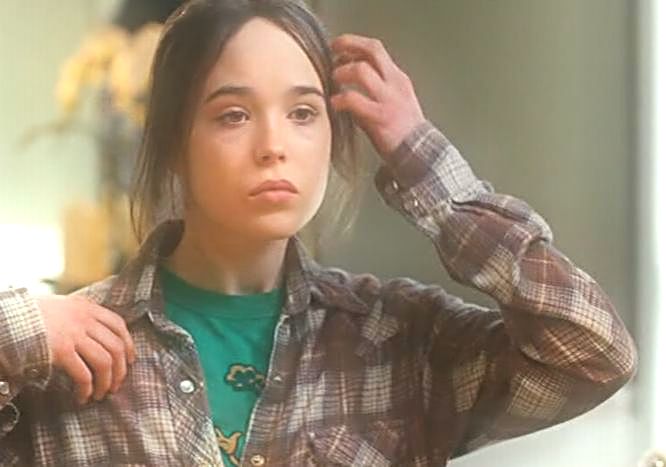 And why does a girl like Juno stand out? Why would we consider her beautiful? Why would we fall in love with her? That will happen in the moment we translate the script to our own recondite fantasies. A script is always an experiment — in this case the gigantic success of Juno at the box office is a sign of a connection mainly with the U.S. public, perhaps due to their unconscious desire to resuscitate the old postcard of the American dream (although ironically the film was shot in Canada), the Capra-esque happy ending without retorting to a pinkified, Hollywoodized denouement. Jeff Tweedy (of the rock band Wilco) has said, "I think America has existed as a myth. As far as the real American dream, as far as whatever was supposed to be that real inspiration and drive behind the social experiment".
I found the gender dynamics in Juno quite fascinating. Our apparently inadvertent heroine instigates a first sexual encounter
And why does a girl like Juno stand out? Why would we consider her beautiful? Why would we fall in love with her? That will happen in the moment we translate the script to our own recondite fantasies. A script is always an experiment — in this case the gigantic success of Juno at the box office is a sign of a connection mainly with the U.S. public, perhaps due to their unconscious desire to resuscitate the old postcard of the American dream (although ironically the film was shot in Canada), the Capra-esque happy ending without retorting to a pinkified, Hollywoodized denouement. Jeff Tweedy (of the rock band Wilco) has said, "I think America has existed as a myth. As far as the real American dream, as far as whatever was supposed to be that real inspiration and drive behind the social experiment".
I found the gender dynamics in Juno quite fascinating. Our apparently inadvertent heroine instigates a first sexual encounter 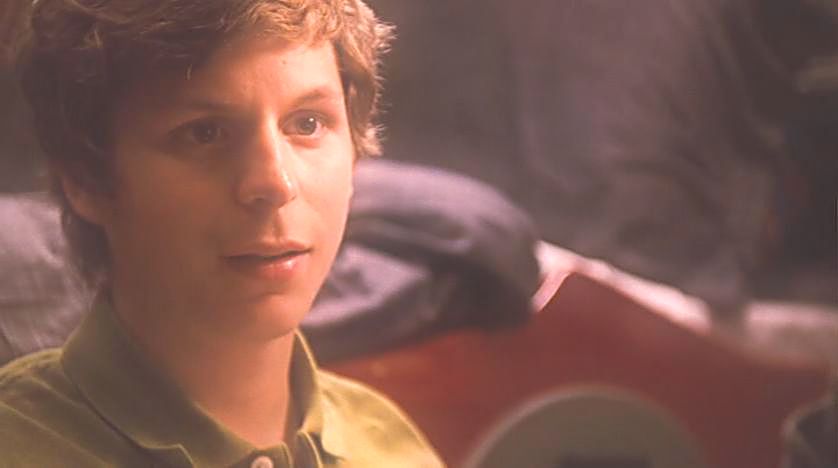 with her shy boyfriend Paulie Bleeker (Michael Cera, who played perfectly his awkward roles as Harold in the short film "Darling, Darling" and Evan in "Superbad").
with her shy boyfriend Paulie Bleeker (Michael Cera, who played perfectly his awkward roles as Harold in the short film "Darling, Darling" and Evan in "Superbad"). 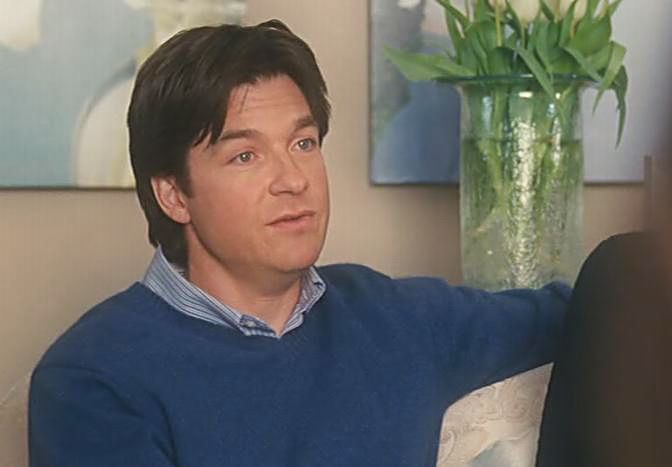 She approaches Mark Loring (Jason Bateman, from Fox's "Arrested Development" sitcom) in a clumsy seductress way —Juno feels sexy in Mark's company— but the intimacy shared during their simulated prom dance is designed to leave the viewers uncomfortable, disoriented, and even feeling dirty. It's also the scene that turns the seduction game upside down and Mr. Loring suddenly becomes an entirely different man.
She approaches Mark Loring (Jason Bateman, from Fox's "Arrested Development" sitcom) in a clumsy seductress way —Juno feels sexy in Mark's company— but the intimacy shared during their simulated prom dance is designed to leave the viewers uncomfortable, disoriented, and even feeling dirty. It's also the scene that turns the seduction game upside down and Mr. Loring suddenly becomes an entirely different man. 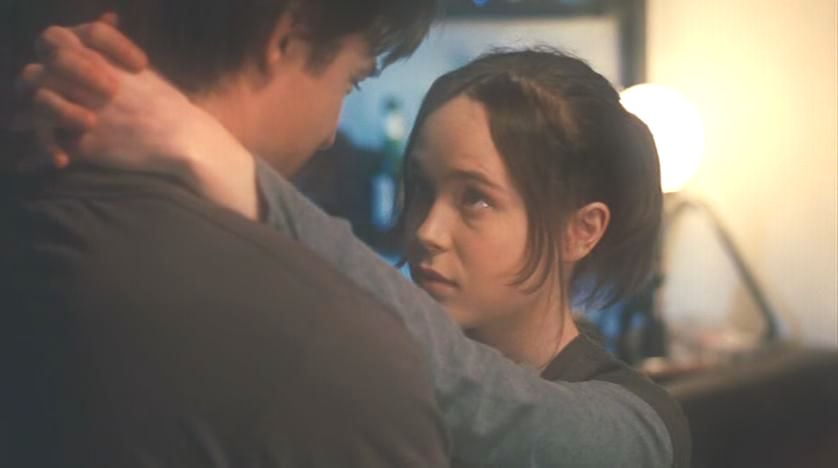 Mark is transformed by Juno's temptation, and Mark becomes Juno's temptation.
Mark is transformed by Juno's temptation, and Mark becomes Juno's temptation. 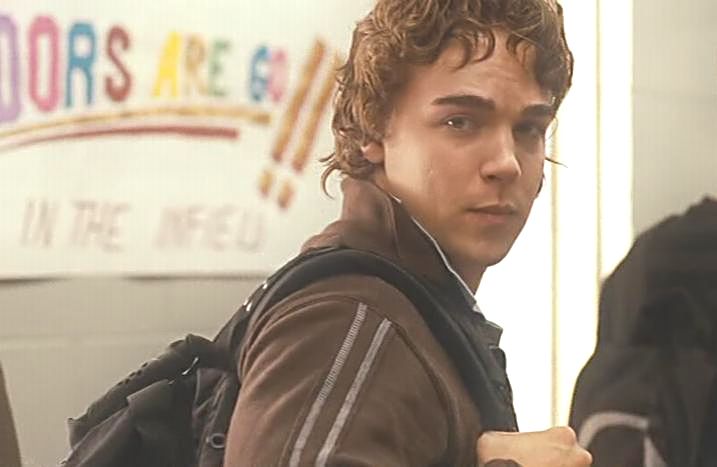 A minor third male character, a young school mate, the jock Steve Rendazo (Daniel Clark), bullies Juno although he secretly is infatuated with her.
A minor third male character, a young school mate, the jock Steve Rendazo (Daniel Clark), bullies Juno although he secretly is infatuated with her.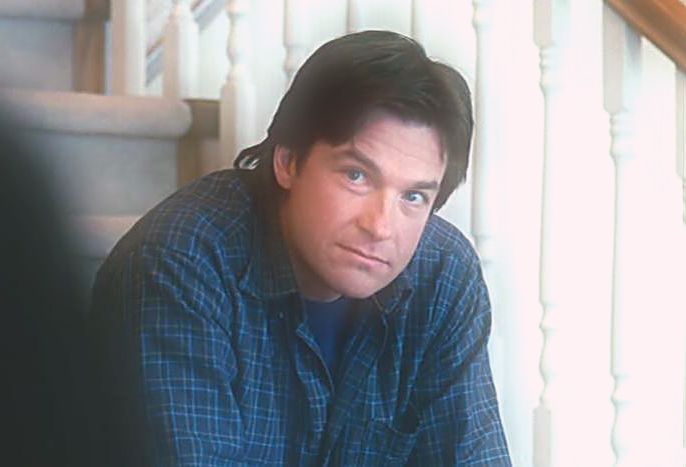 Mark represents a darker, threatening part of the male universe unknown to Juno; their aborted relationship becomes a testing of the most basic principles of her personality. Juno is confused, cries desperately inside her van, her sturdy façade collapses, her humour is gone after confrontating him. I think Juno recognizes in that moment Mark's self-alienation as her own.
Mark represents a darker, threatening part of the male universe unknown to Juno; their aborted relationship becomes a testing of the most basic principles of her personality. Juno is confused, cries desperately inside her van, her sturdy façade collapses, her humour is gone after confrontating him. I think Juno recognizes in that moment Mark's self-alienation as her own. 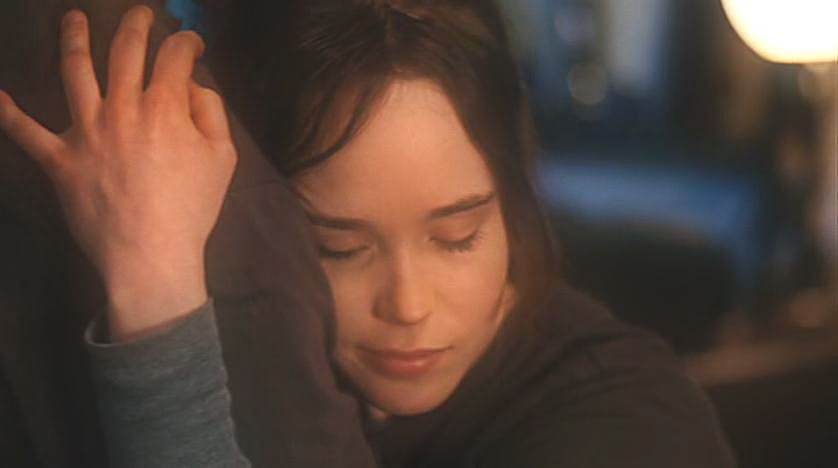 There is a peculiar discussions between Mark and Juno. Mark suggests the best year of rock and roll was 1993 but Juno says 1977. In the essay "Funky days are back again: Reading seventies nostalgia in the late nineties rock music" by David Sigler it's addressed too: "nostalgia for the Seventies in the late Nineties was especially the preoccupation of male artists.
There is a peculiar discussions between Mark and Juno. Mark suggests the best year of rock and roll was 1993 but Juno says 1977. In the essay "Funky days are back again: Reading seventies nostalgia in the late nineties rock music" by David Sigler it's addressed too: "nostalgia for the Seventies in the late Nineties was especially the preoccupation of male artists.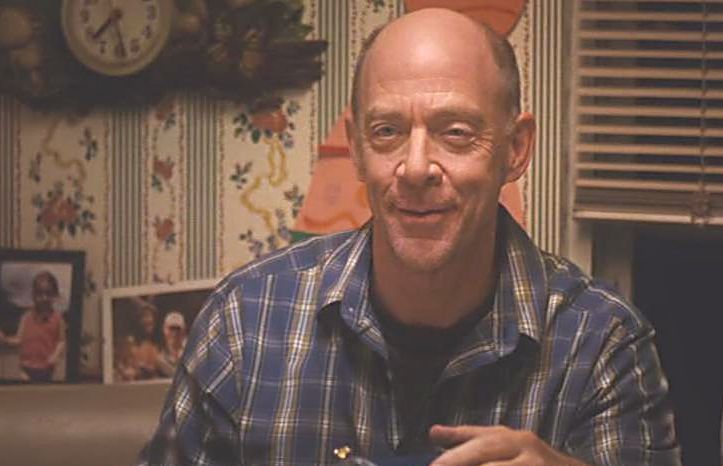 Juno's father, Mac MacGuff (J.K. Simmons) will philosophically rebuke Juno's attraction for Mark and she'll forget her idealization of him, since he isn't "the kind of person that's worth sticking with."
I didn't think of the story as intended to marginalize the male characters in any moment, despite the express devotion (and autobiographical hints: Diablo owns Juno's hamburger phone) of the script to Ellen Page's character; more the opposite, these are not unidimensional guys. Mr. MacGuff, Mark, and finally Bleeker empower and define the ultimate Juno: compassionate and funny, invincible and frail.
What I found really impressive in the film was observing the démariage of Juno's individuality from her instinctual responses during her pregnancy and the unapologetic way of refusing to articulate Juno's decision to give her baby to Vanessa Loring
Juno's father, Mac MacGuff (J.K. Simmons) will philosophically rebuke Juno's attraction for Mark and she'll forget her idealization of him, since he isn't "the kind of person that's worth sticking with."
I didn't think of the story as intended to marginalize the male characters in any moment, despite the express devotion (and autobiographical hints: Diablo owns Juno's hamburger phone) of the script to Ellen Page's character; more the opposite, these are not unidimensional guys. Mr. MacGuff, Mark, and finally Bleeker empower and define the ultimate Juno: compassionate and funny, invincible and frail.
What I found really impressive in the film was observing the démariage of Juno's individuality from her instinctual responses during her pregnancy and the unapologetic way of refusing to articulate Juno's decision to give her baby to Vanessa Loring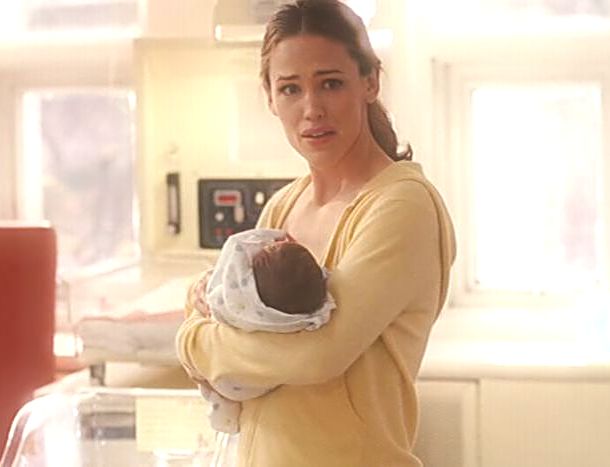 (Jennifer Garner, playing her best dramatic role so far). After struggling with her demons and choosing love above herself, Juno still must sacrifice her son to the replicant mom, the female who symbolizes the politically correct sweetness, the welfare state, the maternal normalization, the grand-scale morality, Vanessa.
(Jennifer Garner, playing her best dramatic role so far). After struggling with her demons and choosing love above herself, Juno still must sacrifice her son to the replicant mom, the female who symbolizes the politically correct sweetness, the welfare state, the maternal normalization, the grand-scale morality, Vanessa. 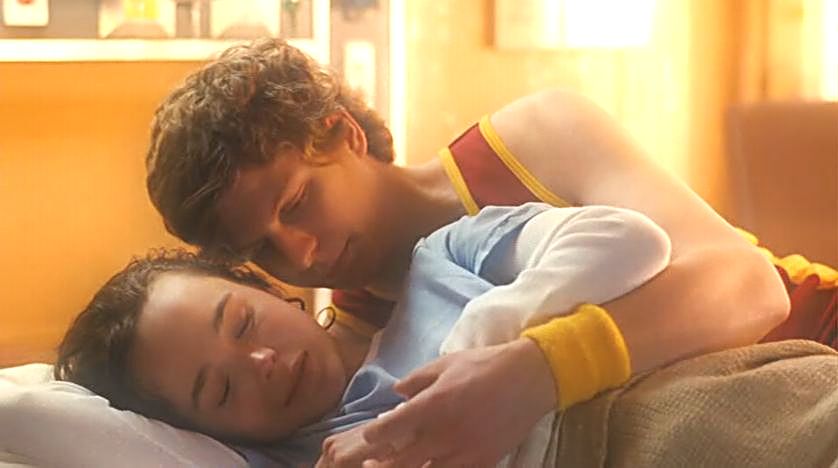 In a last defeatist gesture, Juno is also paradoxically this story's winner. The scenes at the hospital after she gives birth are especially symbolic, when Bleeker —who uses the same trashy hamburger phone— unexpectedly wins a track race but loses his son hours later.
In a last defeatist gesture, Juno is also paradoxically this story's winner. The scenes at the hospital after she gives birth are especially symbolic, when Bleeker —who uses the same trashy hamburger phone— unexpectedly wins a track race but loses his son hours later. 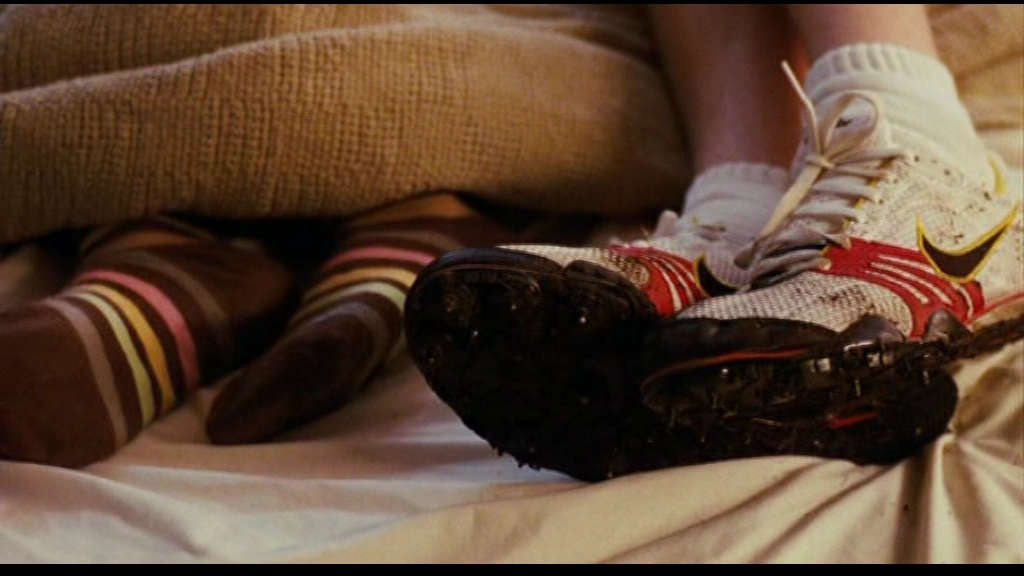 As he lies at Juno's side, the camera focuses on her striped tube socks and his muddy sportswear.
As he lies at Juno's side, the camera focuses on her striped tube socks and his muddy sportswear.
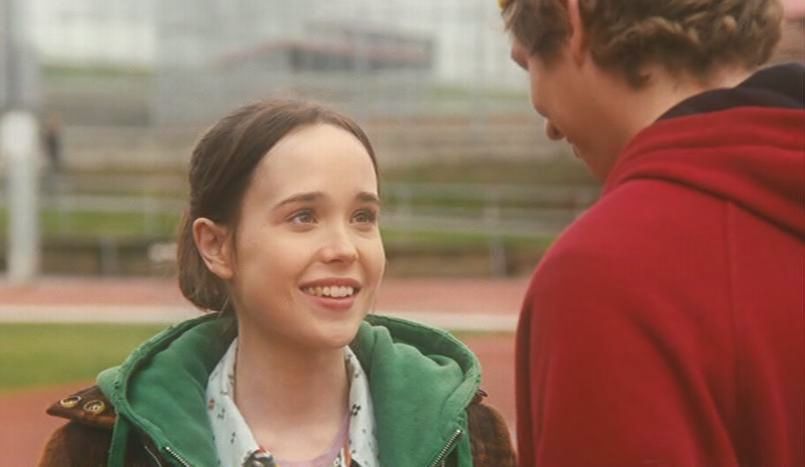 The depiction of Juno and Bleeker's love story strips away the illusion of moral conventions, ignoring the current trend of oversexed relationships, au courant overstylized romances or vulgar immersions in lusty tales. It seemed very clear that the kissing scene between Juno and Bleeker was not only affirming their love, it set them apart from the confinements of "reel":
The depiction of Juno and Bleeker's love story strips away the illusion of moral conventions, ignoring the current trend of oversexed relationships, au courant overstylized romances or vulgar immersions in lusty tales. It seemed very clear that the kissing scene between Juno and Bleeker was not only affirming their love, it set them apart from the confinements of "reel": 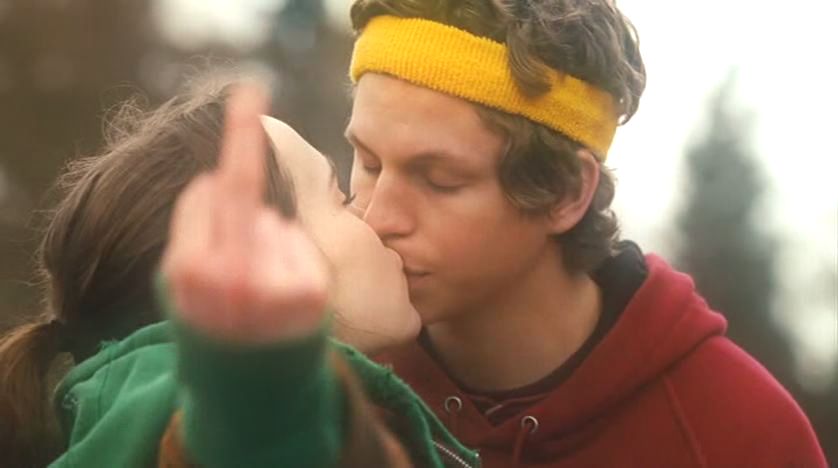 When Juno gives her best female friend Leah (Olivia Thirlby) the finger, she is giving the finger to us all. Diablo Cody conveys her "Diwali" ending like a poetic arc where the deteriorated innocence of two high school outcasts is romanticized in a supreme trick.
Quoting poet Robert Graves: "Love is a universal migraine / A bright stain on the vision / Blotting out reason.”
When Juno gives her best female friend Leah (Olivia Thirlby) the finger, she is giving the finger to us all. Diablo Cody conveys her "Diwali" ending like a poetic arc where the deteriorated innocence of two high school outcasts is romanticized in a supreme trick.
Quoting poet Robert Graves: "Love is a universal migraine / A bright stain on the vision / Blotting out reason.”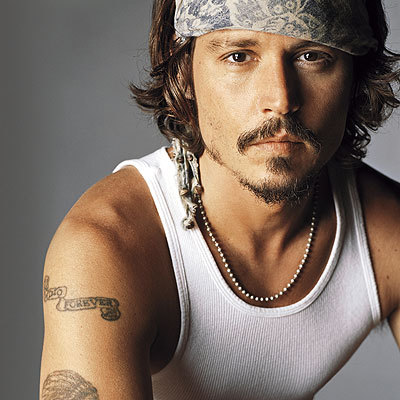 "The struggle I have in mind is the far weightier struggle over who will be the Johnny Depp of the Millennial Generation.
"The struggle I have in mind is the far weightier struggle over who will be the Johnny Depp of the Millennial Generation.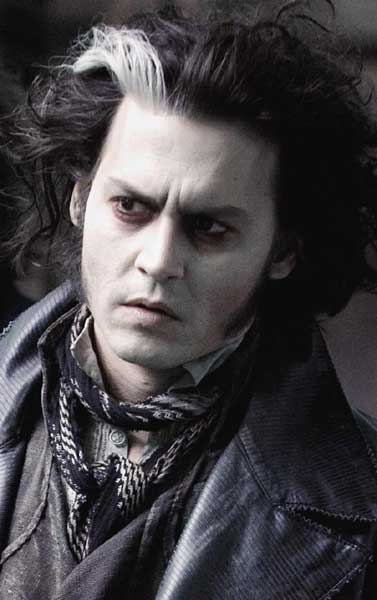 So yes, Depp is a hero to us all, this despite the undeniable fact that he is a goateed Francophile, which is saying rather a lot about his redeeming qualities. For years I've wanted to write a book titled Captain Jack's Guide to Management, divining the Shinto-inspired code of business success buried deep beneath Captain Jack Sparrow's wild-eyed witticisms as spouted in the Pirates of the Caribbean franchise. Alas, there have been no takers as yet.
So yes, Depp is a hero to us all, this despite the undeniable fact that he is a goateed Francophile, which is saying rather a lot about his redeeming qualities. For years I've wanted to write a book titled Captain Jack's Guide to Management, divining the Shinto-inspired code of business success buried deep beneath Captain Jack Sparrow's wild-eyed witticisms as spouted in the Pirates of the Caribbean franchise. Alas, there have been no takers as yet.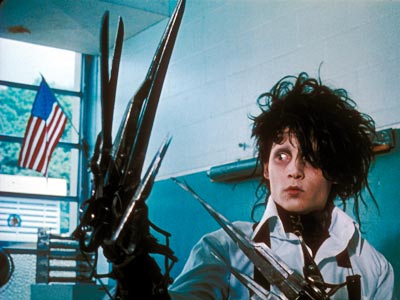 I'll also add, briefly, that I really love the movie Edward Scissorhands and that when I met a really lovely yet very skinny and pale young woman, my brilliant friend dubbed her, "Edward Sisterhands," as though she were, um, Edward Scissorhands' sister. Oh heck, you get the idea.
I'll also add, briefly, that I really love the movie Edward Scissorhands and that when I met a really lovely yet very skinny and pale young woman, my brilliant friend dubbed her, "Edward Sisterhands," as though she were, um, Edward Scissorhands' sister. Oh heck, you get the idea.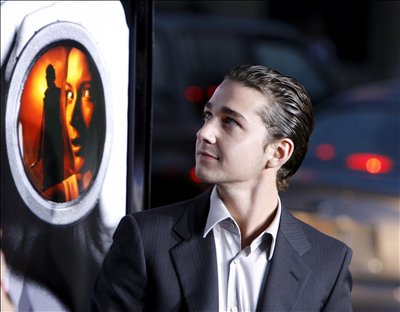 Anyway, I loved Holes and Disturbia as much as the next red-blooded American, but when LaBeouf addressed the assembled hordes at Comic-Con in San Diego last year, he was a punk. Harrison Ford, the wonderful Karen Allen, Steven Spielberg: all were class acts who recognized that the fans are decent, hard-working people who spent a lot of dough to ooh and aah with many like-minded Indiana Jones nerds. Yet Shia slouched and muttered and behaved in a generally impish, prima-donnaish fashion. I'll never forgive him. Rest assured, there are many millions of people who will throw rose petals at this young man's feet, and it's true that he's a decently talented actor. But you're no Depp and you never will be, LaBeouf. So you might want to develop some humility.
Anyway, I loved Holes and Disturbia as much as the next red-blooded American, but when LaBeouf addressed the assembled hordes at Comic-Con in San Diego last year, he was a punk. Harrison Ford, the wonderful Karen Allen, Steven Spielberg: all were class acts who recognized that the fans are decent, hard-working people who spent a lot of dough to ooh and aah with many like-minded Indiana Jones nerds. Yet Shia slouched and muttered and behaved in a generally impish, prima-donnaish fashion. I'll never forgive him. Rest assured, there are many millions of people who will throw rose petals at this young man's feet, and it's true that he's a decently talented actor. But you're no Depp and you never will be, LaBeouf. So you might want to develop some humility.  Oh yes, the ladies love cool Shia. Merry Christmas, and damn you to Hades! What troubles me most is that he's rumored to be the first pick to play Yorick Brown in the forthcoming Y: The Last Man picture. More on Y to come.
Oh yes, the ladies love cool Shia. Merry Christmas, and damn you to Hades! What troubles me most is that he's rumored to be the first pick to play Yorick Brown in the forthcoming Y: The Last Man picture. More on Y to come. Emile Hirsch, in contrast, is a true talent, as demonstrated by his remarkable star turn in Sean Penn's Into the Wild, easily one of the most affecting performances of 2007.
Emile Hirsch, in contrast, is a true talent, as demonstrated by his remarkable star turn in Sean Penn's Into the Wild, easily one of the most affecting performances of 2007. 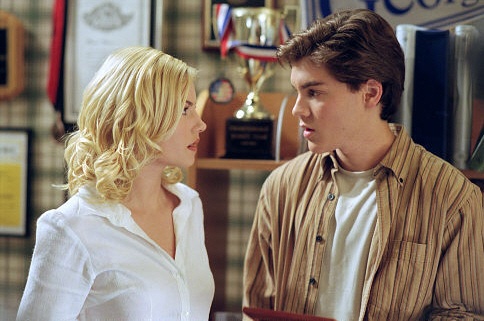 Even in The Girl Next Door, a silly yet mildly diverting teen sex comedy, Hirsch gave a moving performance that ranged from earnest naif to smolderingly intense proto-pimp. This kid is going places, and my hope is that he will take a brief detour on the way there to trample on Shia LaBeouf. Metaphorically.
Even in The Girl Next Door, a silly yet mildly diverting teen sex comedy, Hirsch gave a moving performance that ranged from earnest naif to smolderingly intense proto-pimp. This kid is going places, and my hope is that he will take a brief detour on the way there to trample on Shia LaBeouf. Metaphorically.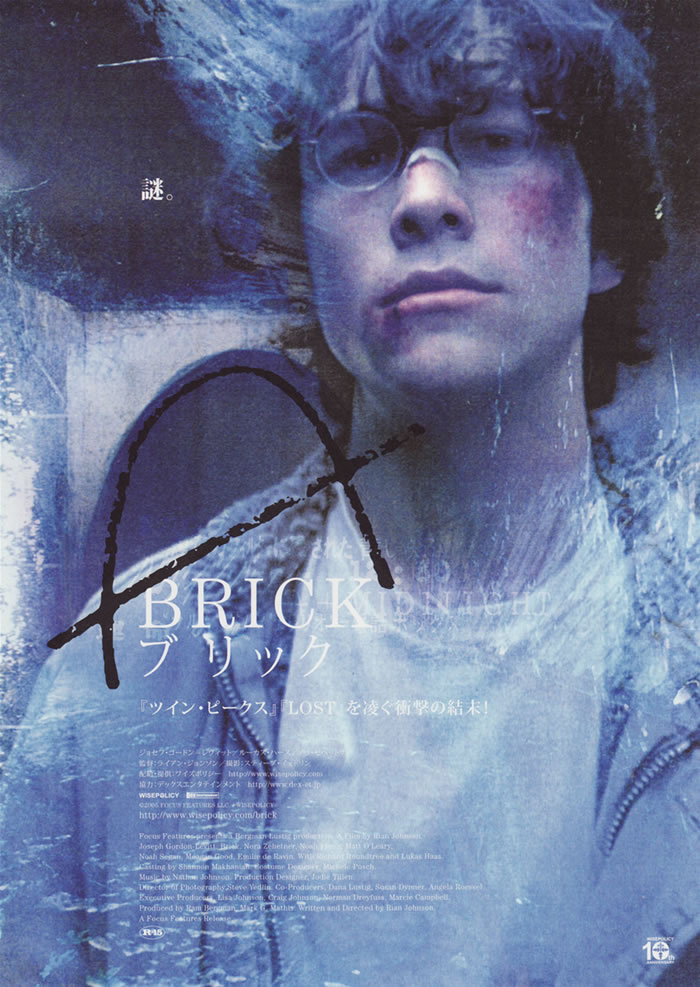 Then there is Joseph Gordon-Levitt, who has been making many strategically shrewd choices -- playing despised, marginalized types, starring in the awesome Brick (which also starred the
Then there is Joseph Gordon-Levitt, who has been making many strategically shrewd choices -- playing despised, marginalized types, starring in the awesome Brick (which also starred the 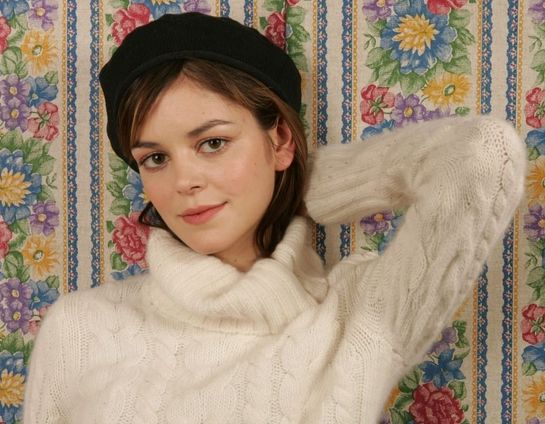 awesome Nora Zehetner, who also played the young Helena Bonham Carter in the criminally underrated Conversations with Other Women).
awesome Nora Zehetner, who also played the young Helena Bonham Carter in the criminally underrated Conversations with Other Women). 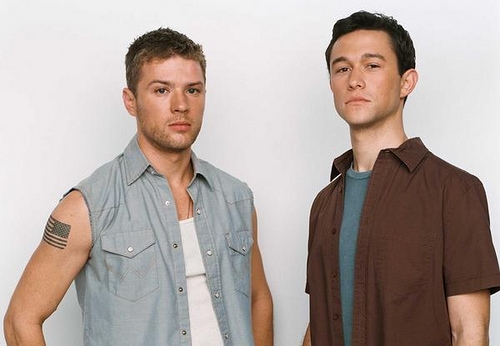 JG-L is a bit older, and he certainly has the inside track to be the sleeper indie Depp. My sense is that once LaBeouf is out of the way, say his massive ego leads to some kind of temporary brain
JG-L is a bit older, and he certainly has the inside track to be the sleeper indie Depp. My sense is that once LaBeouf is out of the way, say his massive ego leads to some kind of temporary brain 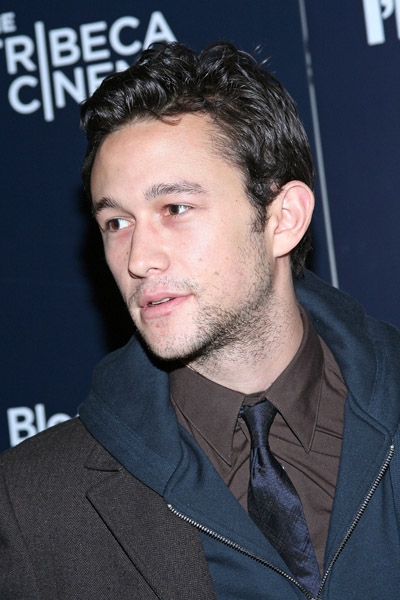 rupture, Hirsch will have to face off against Gordon-Levitt in a battle to the death. Just as the end of the Second World War saw a a globe-spanning conflict between two former allies, this hitherto unforeseen battle may prove the most consequential of them all. And the balance will be in the hands of celebrated tween icon Miranda Cosgrove, who I predict will become the Helena Bonham Carter of Generation Z" -by randfashions in the Hitrecord Message Board
rupture, Hirsch will have to face off against Gordon-Levitt in a battle to the death. Just as the end of the Second World War saw a a globe-spanning conflict between two former allies, this hitherto unforeseen battle may prove the most consequential of them all. And the balance will be in the hands of celebrated tween icon Miranda Cosgrove, who I predict will become the Helena Bonham Carter of Generation Z" -by randfashions in the Hitrecord Message Board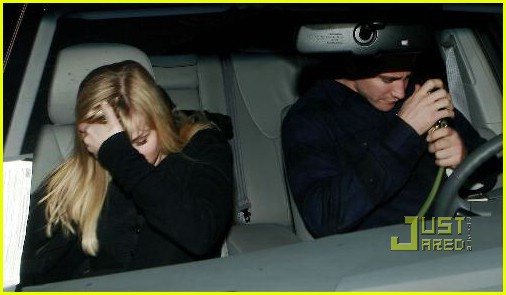
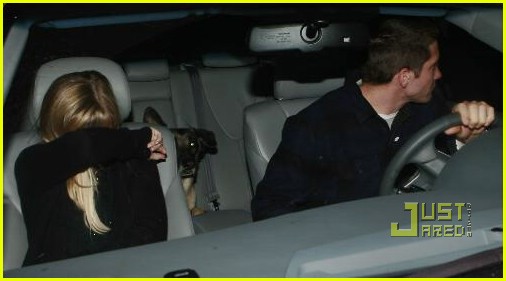
 "Donnie hardly recognizes himself: Plagued by fits of sleepwalking and vivid hallucinations of a six-foot metallic rabbit with monstrous teeth, he feels totally out of control, unable to decipher what is real. Panicked by the world around him and terrified of being alone, he finds himself unable to connect with other people. [...] A contemporary Holden Caulfield, he alternates between kindness and cruelty, boldness and fear, hope and despair. The film never sugarcoats its protagonist's failings, and Gyllenhaal doesn't sweeten the portrait, revealing a rebellious teenager so rude to his mother, we cringe".
"Donnie hardly recognizes himself: Plagued by fits of sleepwalking and vivid hallucinations of a six-foot metallic rabbit with monstrous teeth, he feels totally out of control, unable to decipher what is real. Panicked by the world around him and terrified of being alone, he finds himself unable to connect with other people. [...] A contemporary Holden Caulfield, he alternates between kindness and cruelty, boldness and fear, hope and despair. The film never sugarcoats its protagonist's failings, and Gyllenhaal doesn't sweeten the portrait, revealing a rebellious teenager so rude to his mother, we cringe". 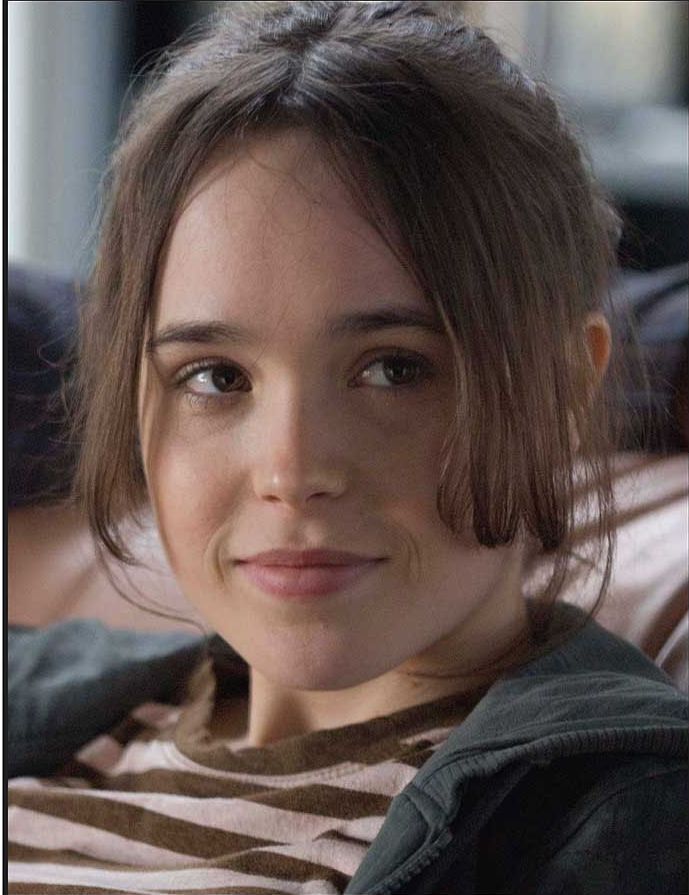 "Girls haven't had that sort of character before. We don't have our Catcher in the Rye" -Ellen Page. Source: www.ew.com
"Girls haven't had that sort of character before. We don't have our Catcher in the Rye" -Ellen Page. Source: www.ew.com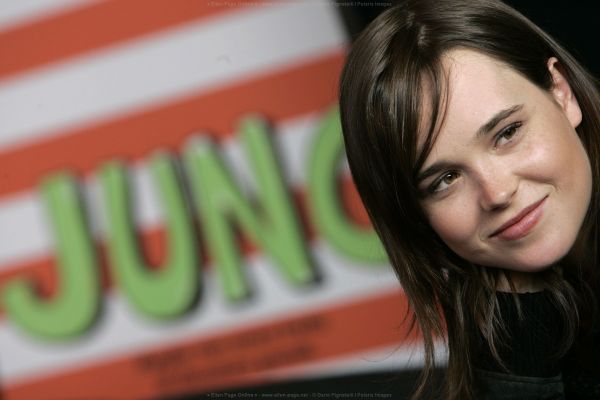 "Jason Reitman's Juno is a gem. It does for film what J D Salinger's Catcher In The Rye did for literature back in the late Fifties. Both are vivid portraits of adolescents: the former a girl, Juno MacGuff, superbly played by Ellen Page, the latter a boy, Holden Caulfield. Both are highly critical of the society in which they live and have trouble fitting in with the accepted activities of their peers and elders".
"Jason Reitman's Juno is a gem. It does for film what J D Salinger's Catcher In The Rye did for literature back in the late Fifties. Both are vivid portraits of adolescents: the former a girl, Juno MacGuff, superbly played by Ellen Page, the latter a boy, Holden Caulfield. Both are highly critical of the society in which they live and have trouble fitting in with the accepted activities of their peers and elders". 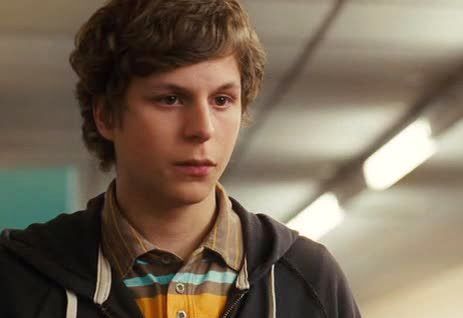 "She's also keen on Bleeker (Michael Cera), a fellow student in her class who is a bit of a misfit. He's highly intelligent, makes an effort to join in with the jocks on their sporting activities, but doesn't appear to have any close friends amongst them".
"She's also keen on Bleeker (Michael Cera), a fellow student in her class who is a bit of a misfit. He's highly intelligent, makes an effort to join in with the jocks on their sporting activities, but doesn't appear to have any close friends amongst them". 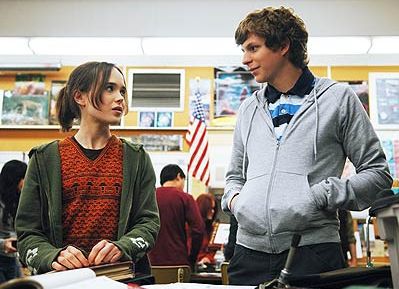 "Juno’s character is the most interesting thing about the movie. She is written as a feminine Holden Caulfield; highly pessimistic of the world around her and critical of a number of things. For the most part, she is an outcast at her school but by her own will and at the same time, to paraphrase her, she is the nerdy dream girl of a jock or two". Source: jackasscritics.com
"Juno’s character is the most interesting thing about the movie. She is written as a feminine Holden Caulfield; highly pessimistic of the world around her and critical of a number of things. For the most part, she is an outcast at her school but by her own will and at the same time, to paraphrase her, she is the nerdy dream girl of a jock or two". Source: jackasscritics.com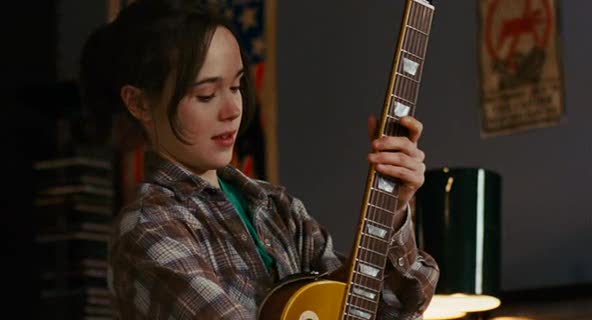 "Think Holden Caulfield, only female and pregnant. That’s Juno MacGuff". Source: www.kansascity.com
"Think Holden Caulfield, only female and pregnant. That’s Juno MacGuff". Source: www.kansascity.com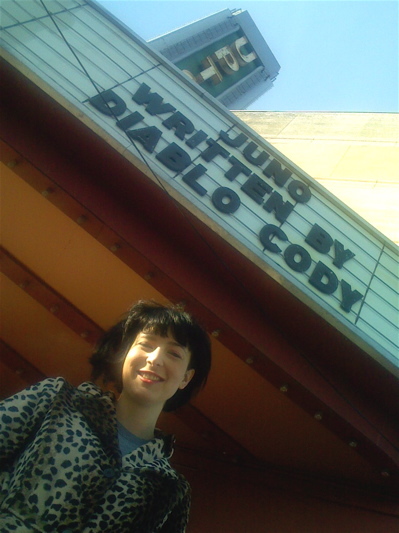 "According to the scooper, the film will largely focus on the relationship between the titular Jennifer, a high-school sex bomb and all around homecoming queen type who is also possessed by satanic forces -- there's a real 80s vibe, apparently -- and her best friend, called Needy. Needy slowly starts to realize that something is seriously wrong with Jennifer, since the boys she goes out with don't come back. But enough about the story -- what's the critique? According to the source, the script is an "oddly-paced, slightly incoherent horror comedy. This is trying too hard to be some genre-smashing cult hit like Donnie Darko..." Source: www.cinematical.com
"According to the scooper, the film will largely focus on the relationship between the titular Jennifer, a high-school sex bomb and all around homecoming queen type who is also possessed by satanic forces -- there's a real 80s vibe, apparently -- and her best friend, called Needy. Needy slowly starts to realize that something is seriously wrong with Jennifer, since the boys she goes out with don't come back. But enough about the story -- what's the critique? According to the source, the script is an "oddly-paced, slightly incoherent horror comedy. This is trying too hard to be some genre-smashing cult hit like Donnie Darko..." Source: www.cinematical.com


